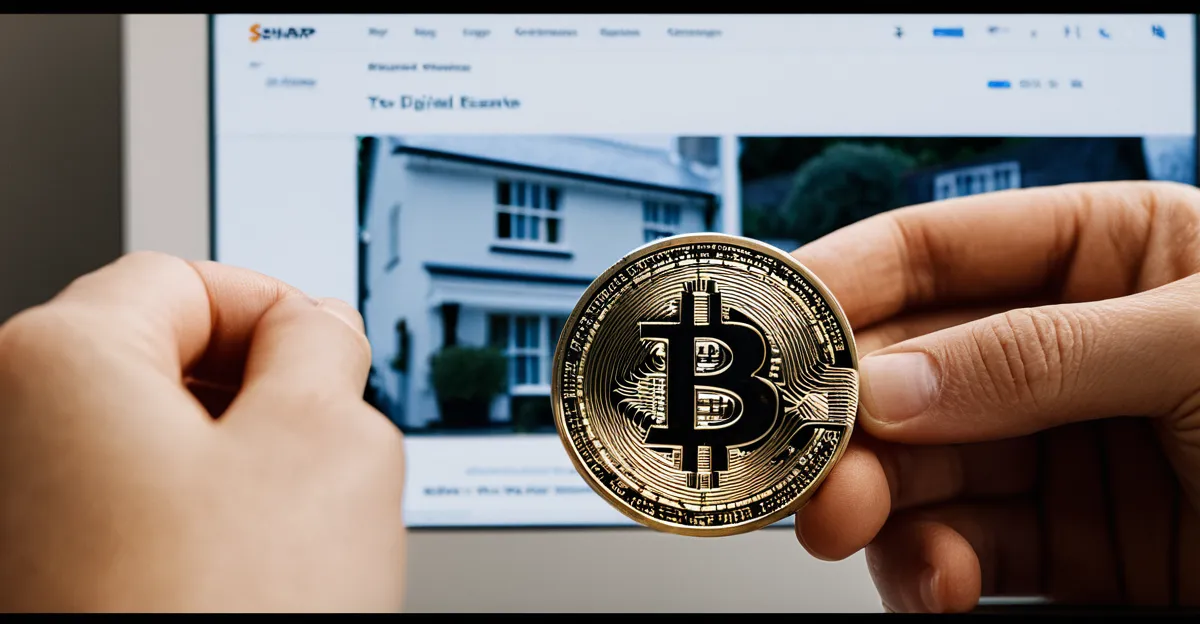Impact of Digital Currencies on UK Real Estate Transactions
Digital currencies are significantly transforming the UK property market, reshaping how transactions are executed and perceived. Their adoption introduces new dynamics that challenge traditional real estate methods.
In the UK, digital currencies in real estate enable quicker, more seamless property transactions by bypassing conventional banking intermediaries. This reduction in reliance on banks cuts down delays caused by processing times, offering a more efficient settlement process. Moreover, the transparency inherent in blockchain, which underpins most digital currencies, enhances trustworthiness between buyers and sellers through visible, tamper-proof transaction histories.
Also to read : How Can UK Real Estate Drive Economic Growth in the Finance Sector?
This shift also influences traditional market practices. Real estate agents and legal professionals encounter the need to adapt to evolving verification and compliance processes linked to digital currency payments. While some in the industry remain cautious, the potential for streamlined dealings and lower transaction fees entices many to explore integrating digital currencies into their operations.
As digital currencies continue to permeate property dealings, their impact drives a transformation in the UK property market, fostering innovation and efficiency but also demanding new approaches to regulation and practical implementation.
Also to see : Could the UK Real Estate Market Experience a Significant Shift in 2024?
How Digital Currencies Work in UK Property Buying and Selling
Digital currencies in real estate operate primarily through blockchain technology, a secure, decentralized ledger that records every transaction transparently. In the UK property market transformation, blockchain real estate UK systems ensure immutable transaction histories, reducing fraud risk and increasing trust between parties.
When buyers engage in cryptocurrency property transactions, the process begins with agreeing on a digital currency price equivalent to the property’s value. Payments are then transferred via digital wallets, recorded instantly on the blockchain. Sellers receive near-immediate confirmation, drastically cutting traditional delays related to bank processing.
The steps involve:
- Verification of identity and property details on the blockchain.
- Agreement on terms, secured through smart contracts that execute automatically once conditions are met.
- Transfer of digital currency tokens from buyer to seller.
- Recording final ownership on a blockchain-enabled title registry, ensuring transparent and tamper-proof proof of sale.
This seamless approach centralises transaction records, supporting smoother deals and fewer intermediaries. However, adopting these methods requires both buyers and sellers to understand digital wallets and blockchain mechanics, cementing digital currencies in real estate as a tech-driven, efficient alternative to conventional payments.
Key Benefits of Using Digital Currencies in the UK Property Market
Advancements in digital currencies in real estate fundamentally enhance transaction speed. Traditional UK property market transformation often faces delays from bank clearing processes lasting days or weeks. In contrast, digital currency transfers finalize within minutes or hours, enabling much faster settlement. This efficiency benefits buyers and sellers eager to complete deals swiftly and reduces holding costs for sellers.
Beyond speed of transactions, transaction transparency is a crucial upside. Blockchain technology underpins digital currency usage, providing an immutable ledger accessible to involved parties. This visibility fosters trust, as every payment and contract detail is recorded without alteration risk. For example, buyers can verify payments instantly, mitigating fraud concerns often present in conventional dealings.
Cost reduction forms the third major advantage. Digital currencies can lower fees by cutting out intermediaries such as banks and payment processors. This streamlining reduces expenses and can translate into direct savings on transaction fees. The combination of faster settlements, enhanced transparency, and cost efficiency positions digital currencies as a compelling solution driving the UK property market transformation forward.





